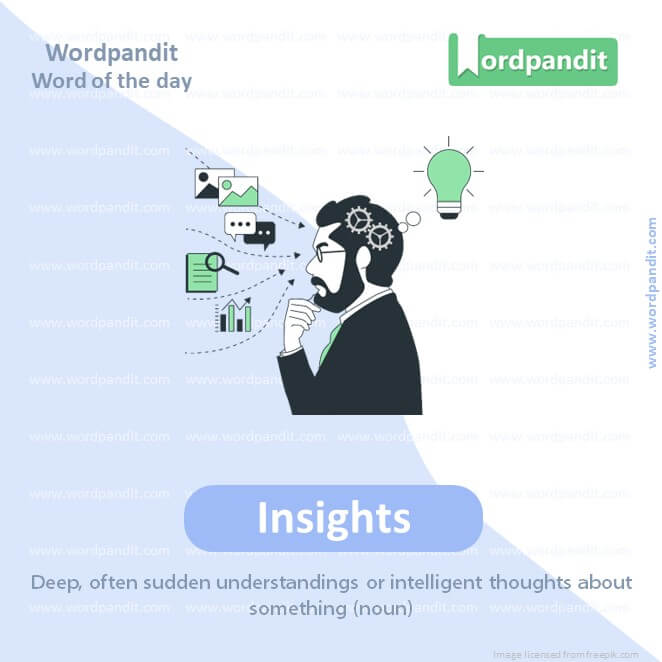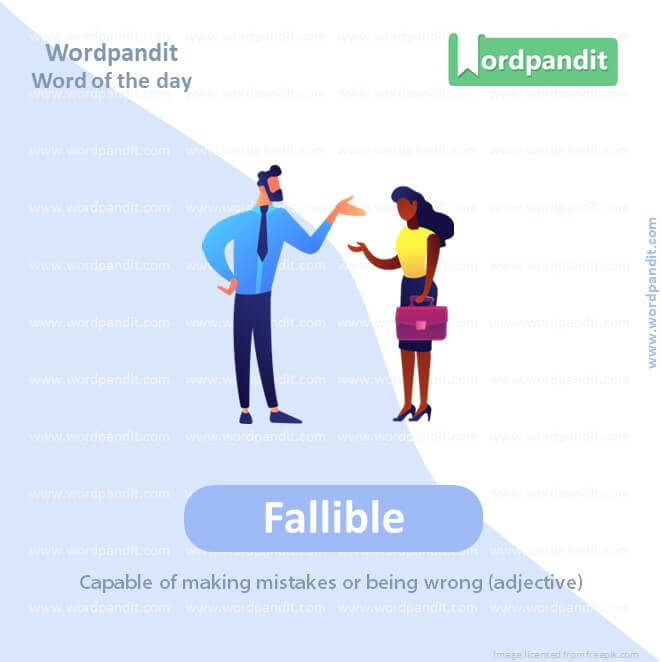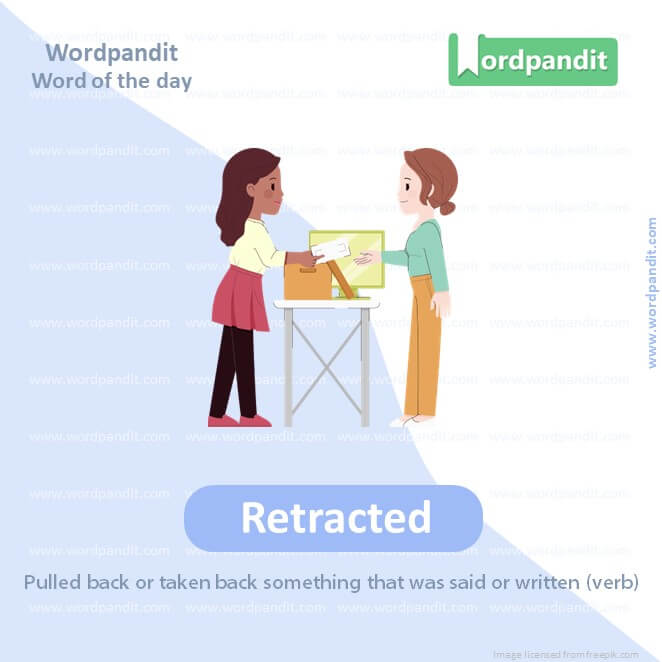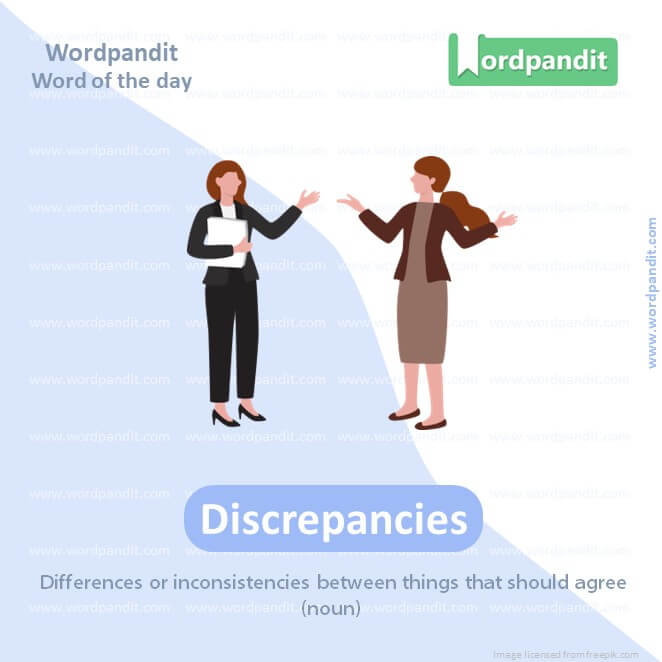Daily Vocabulary Words: List of Daily Used Words in Leading Indian Newspapers
Hi there. Welcome to this special section @ Wordpandit. Our endeavour here is straightforward: highlighting daily vocabulary words that you would come across in leading newspapers in the country. We have included the following newspapers in our selection:
• The Times of India
• The Economic Times
• Hindustan Times
• Mint
• Indian Express
We are putting in extensive work to develop your vocabulary. All you have to do is be regular with this section and check out this post daily. This is your repository of commonly used words; essentially, we are posting a list of daily used words. Hence, this has significant practical application as it teaches you words that are commonly used in leading publications mentioned above.
Visit the website daily to learn words from leading Indian newspapers.
WORD-1: Lustre
CONTEXT: The global financial crash of 2008 was as much a crisis of economics as it was an economic crisis. Economists’ inability to foresee the crisis sowed doubts about their craft. As conventional theories lost lustre, a new branch of economics gained popularity.
SOURCE: Hindustan Times
EXPLANATORY PARAGRAPH: Imagine something that shines really bright and looks very pretty, like a shiny star or a sparkling diamond. That’s what ‘lustre’ is like. It’s when something has a special glow or shine that makes it look very special and beautiful.
MEANING: The appearance of shining with a soft, glowing light (noun).
PRONUNCIATION: LUH-ster
SYNONYMS: Gloss, Shine, Sheen, Radiance, Glow.
USAGE EXAMPLE:
1. The old coin still had its lustre.
2. She polished the silver until it regained its original lustre.
3. The lustre of the moonlight made the lake look magical.
4. The gemstone’s lustre caught everyone’s eye.

WORD-2: Insights
CONTEXT: Combining insights from psychology and economics, behavioural economics offered a fresh approach to complex problems. It helped that one of the few finance experts to have predicted the crash, Robert Shiller, was a major proponent of behavioural finance.
SOURCE: Hindustan Times
EXPLANATORY PARAGRAPH: Insights are like secret understandings or super smart ideas about something. Imagine figuring out why your friend is sad without them telling you. That’s an insight – you understood something really well!
MEANING: Deep, often sudden understandings or intelligent thoughts about something (noun).
PRONUNCIATION: IN-sites
SYNONYMS: Understanding, Perception, Awareness, Discernment, Enlightenment.
USAGE EXAMPLE:
1. Her insights into the problem were very helpful.
2. The book offers interesting insights into the president’s life.
3. He gained new insights from the discussion.
4. The scientist shared his insights on the matter.

WORD-3: Proponent
CONTEXT: Combining insights from psychology and economics, behavioural economics offered a fresh approach to complex problems. It helped that one of the few finance experts to have predicted the crash, Robert Shiller, was a major proponent of behavioural finance.
SOURCE: Hindustan Times
EXPLANATORY PARAGRAPH: A proponent is like a cheerleader for an idea or a thing. This person really believes in it and tells other people they should like it or do it too. Like when you really like a game and tell your friends how great it is!
MEANING: Someone who supports a particular idea or plan (noun).
PRONUNCIATION: pruh-POH-nuhnt
SYNONYMS: Advocate, Supporter, Champion, Backer, Defender.
USAGE EXAMPLE:
1. She is a strong proponent of environmental protection.
2. As a proponent of healthy eating, he encourages others to eat vegetables.
3. The scientist was a proponent of the new theory.
4. He became a proponent of online education.

WORD-4: Fallible
CONTEXT: Shiller held that herd behaviour rather than rational calculations often drove financial investments, and went on to win the Nobel Prize in 2013. Another future Nobel Prize winner, Richard Thaler, proposed that policymakers should prod fallible citizens to make better choices in his 2008 book Nudge.
SOURCE: Hindustan Times
EXPLANATORY PARAGRAPH: Fallible means someone can make mistakes sometimes. Just like when you try really hard but still get something wrong. Everyone is fallible because nobody is perfect and everyone makes mistakes!
MEANING: Capable of making mistakes or being wrong (adjective).
PRONUNCIATION: FAL-uh-buhl
SYNONYMS: Imperfect, Error-prone, Human, Flawed, Mistakable.
USAGE EXAMPLE:
1. Even the best players are fallible.
2. We must remember that all humans are fallible.
3. As a fallible being, he admitted his errors.
4. The system, though good, is fallible.
WORD-5: Rigour
CONTEXT: Some behavioural scientists became uneasy with the turn their field was taking. Three of them — Uri Simonsohn, Joseph Simmons, and Leif Nelson — launched the Data Colada blog in 2013 to assess the validity and rigour of research in their field.
SOURCE: Hindustan Times
EXPLANATORY PARAGRAPH: Rigour is like doing something really seriously and carefully. It’s like when you take your time to build a big puzzle, checking every piece carefully. That’s doing it with rigour – being very detailed and not missing anything!
MEANING: The quality of being extremely thorough and careful (noun).
PRONUNCIATION: RIG-er
SYNONYMS: Strictness, Thoroughness, Precision, Stringency, Meticulousness.
USAGE EXAMPLE:
1. The research was conducted with academic rigour.
2. She approached her studies with great rigour.
3. The rigour of his training prepared him well.
4. There was a lack of rigour in the analysis.
WORD-6: Anomalies
CONTEXT: Two years ago, the bloggers detected evidence of data tampering in a research paper by Francesca Gino, a Harvard Business School professor. The blame fell on one of Gino’s co-authors, (another renowned behavioural economist Dan Ariely). Gino praised the bloggers for their “talent and courage” in uncovering “serious anomalies”. The paper was retracted.
SOURCE: Hindustan Times
EXPLANATORY PARAGRAPH: Anomalies are things that are different from what is usual or expected. Imagine finding a blue apple when all apples are usually red or green – that blue apple would be an anomaly because it’s not what you expect to see!
MEANING: Things that are unusual or do not fit in a regular pattern (noun).
PRONUNCIATION: uh-NOM-uh-lees
SYNONYMS: Irregularities, Aberrations, Oddities, Exceptions, Deviations.
USAGE EXAMPLE:
1. The scientist studied weather anomalies.
2. Anomalies in the data were investigated.
3. These symptoms are anomalies in the disease’s progression.
4. The anomaly stood out in the pattern.

WORD-7: Retracted
CONTEXT: Two years ago, the bloggers detected evidence of data tampering in a research paper by Francesca Gino, a Harvard Business School professor. The blame fell on one of Gino’s co-authors, (another renowned behavioural economist Dan Ariely). Gino praised the bloggers for their “talent and courage” in uncovering “serious anomalies”. The paper was retracted.
SOURCE: Hindustan Times
EXPLANATORY PARAGRAPH: Retracted is like when you pull something back or take back what you said. It’s like saying you found a dinosaur in your backyard and then saying, “Oops, I was wrong. There’s no dinosaur.” You retracted, or took back, what you said.
MEANING: Pulled back or taken back something that was said or written (verb).
PRONUNCIATION: ree-TRAK-ted
SYNONYMS: Withdrawn, Revoked, Recalled, Rescinded, Annulled.
USAGE EXAMPLE:
1. The newspaper retracted the incorrect statement.
2. He retracted his hand from the hot stove.
3. The author retracted her previous comments.
4. The allegations were later retracted.

WORD-8: Discrepancies
CONTEXT: Meanwhile, the bloggers found other discrepancies in Gino’s research and alerted her university. Harvard conducted its own investigation before suspending her in June.
SOURCE: Hindustan Times
EXPLANATORY PARAGRAPH: Discrepancies are like differences between things that should be the same. Imagine you and your friend counting your toy cars and you count 10, but your friend counts 11. That difference is a discrepancy because the numbers should match but they don’t.
MEANING: Differences or inconsistencies between things that should agree (noun).
PRONUNCIATION: dis-KREP-uhn-sees
SYNONYMS: Inconsistencies, Contradictions, Variances, Divergences, Disparities.
USAGE EXAMPLE:
1. They discussed the discrepancies in their reports.
2. Discrepancies between the two accounts raised questions.
3. The audit revealed several financial discrepancies.
4. Discrepancies in the evidence led to further investigation.
WORD-9: Reckoning
CONTEXT: If 2008 marked the rise of behavioural economics, 2023 marks a year of reckoning. The Gino-Colada affair has blown the lid off a simmering crisis in the field. Several famous studies have either been retracted or disputed in recent years.
SOURCE: Hindustan Times
EXPLANATORY PARAGRAPH: Reckoning is like counting or figuring something out. It can also mean when it’s time to explain or pay for what you did. Like if you took too many cookies, and mom says, “It’s time for reckoning,” she means you need to explain or maybe give some cookies back.
MEANING: The act of calculating or considering the consequences of actions (noun).
PRONUNCIATION: REK-uh-ning
SYNONYMS: Calculation, Estimation, Judgment, Appraisal, Assessment.
USAGE EXAMPLE:
1. The final reckoning showed they owed $500.
2. It was a moment of reckoning for his actions.
3. They were far apart in their reckoning of the expenses.
4. The election was a day of reckoning for the party.
WORD-10: Simmering
CONTEXT: If 2008 marked the rise of behavioural economics, 2023 marks a year of reckoning. The Gino-Colada affair has blown the lid off a simmering crisis in the field. Several famous studies have either been retracted or disputed in recent years.
SOURCE: Hindustan Times
EXPLANATORY PARAGRAPH: Simmering is like cooking something gently with little bubbles. It’s not boiling with big bubbles, just cooking slowly with tiny ones. Like when mom makes soup, she lets it simmer so it cooks just right without burning.
MEANING: Cooking or boiling gently just below the boiling point (verb).
PRONUNCIATION: SIM-er-ing
SYNONYMS: Stewing, Brewing, Heating, Bubbling, Steaming.
USAGE EXAMPLE:
1. The sauce was simmering on the stove.
2. Let the soup simmer for an hour.
3. The conflict had been simmering for years.
4. She felt anger simmering inside her.
Vocabulary 100 Words
Diving into the exciting waters of language learning, encountering a list of ‘vocabulary 100 words’ is a common step. These lists, often tailored to specific proficiency levels or topics, present microcosms of the language, cradling essential words that broaden our linguistic comprehension. However, to effectively grasp ‘vocabulary 100 words’, a well-crafted strategy is imperative.
The cornerstone of learning any ‘vocabulary 100 words’ lies in understanding each word with depth. This involves more than just registering the meaning. It extends to understanding its use in different contexts, its nuances, and its connotations.
When navigating ‘vocabulary 100 words’, pacing is extremely important. Rather than trying to absorb all the words at once, a steady approach of learning a few words every day promotes better retention. This assures your brain is not overwhelmed with information, resulting in more effective learning.
Interactivity adds a significant boost while engaging with ‘vocabulary 100 words’. Employ tools like flashcards or digital language-learning apps to make your learning experience more engaging. Regular tests or quizzes provided by these platforms can be beneficial in gauging your progress and identifying areas that need additional work.
Real-world usage significantly enriches understanding of ‘vocabulary 100 words’. Incorporate the words into your daily conversations, writing, or social media interactions. This practice element not only empowers retention but also bolsters your confidence in using these words correctly.
In conclusion, mastering ‘vocabulary 100 words’ is an enriching journey that calls for systematic learning, paced approach, engaging tools, and practical application. As you venture down this path, you’ll find the ‘vocabulary 100 words’ transforming from daunting lists into friendly allies, accompanying you on your thrilling linguistic exploration.













